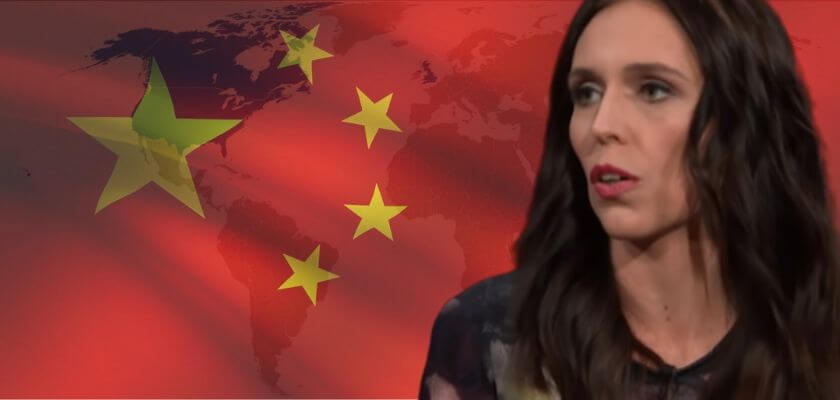New Zealand may not, after all, have lived up to that very high bar of democratic, tech, and journalistic integrity, such as what might have recently been presented and reiterated by former CIA analysts testifying in the US.
That’s something of a surprise, given the country’s recent push to place itself on the forefront of what is saw and declared to be democracy-affirming activities.
After all, let’s recall – after a mass-murderer in March shot up two mosques in New Zealand, killing at least 50 people – New Zealand, this previously quiet and digitally free end of the world – sprung up to action.
Immediately in the wake of the shocking crime two months ago, websites were arbitrarily blocked, along with content depicting the crime posted on major global social media platforms, while Big Tech was pressured to find a quick fix to police all content found on their mega-structure global platforms. Or else.
And only earlier this month, New Zealand, along with EU’s perennial “overachiever” France, came up with the Christchurch Call – in the same vein. The United States said “no” to the initiative – because, long story short – lip-service quoted for a couple of hours on newswires would never be worth sacrificing a nation’s reputation as a beacon of free speech online.
But that was not a concern New Zealand’s government has had. They heartily launched and supported that particular initiative, formulated along with France.
Nevertheless – apparently, none of these formidable sacrifices have been enough to stave off other concerns about the country’s true policies and intentions – in the much grander scale of geopolitical concerns.
So what is this all about? Can a country overachieve in one democratic aspect, and then fall very much short of the same standard in another?
Now, New Zealand is being accused of not standing up to China as well as it should do. And there are suggestions that this may even be a reason to kick it out of a long-standing western intelligence community.
Namely – humans have two eyes, spiders have eight – and then there’s the Five Eyes – the “anglophone” signals intelligence grouping comprising the US, Canada, Australia, the UK, and New Zealand, set up about half a century ago.
And as there is more to life – and international relations – than just the daily events, however tragic they may be – reports now suggest that in the grand scheme of things – one of the Five Eyes members, namely, New Zealand, may not have lived up to its promise of the alliance – especially when it comes to its links with China.
At least that’s what former CIA China expert Peter Mattis has said in his testimony before the US-China Economic and Security Review Commission in April, to further assert that New Zealand has not done enough to stand up to the meddling by the Chinese Communist Party (CCP).
New Zealand’s former and present prime ministers, Bill English, and Jacinda Ardern have both been accused here of “denying there’s a problem at all” by Mattis, a Jamestown Foundation fellow.
Mattis also stated that New Zealand’s membership in the “Five Eyes” should be reconsidered, given the country’s alleged unwillingness to face fundamental problems concerning the Chinese influence.
He also asserted that China’s ruling party has had close links with both Australia’s and New Zealand’s “core” ruling structures – but that these two countries have reacted differently – and Mattis likes Australia’s reaction much more.
Namely, while Australia has moved to order a secret government study that eventually proved that the Chinese Communist Party was trying to “influence all levels of politics” down under – and based on these findings, legislated a series of laws to counter “espionage, foreign political donations, and foreign interference” – New Zealand has fallen well behind.
“It’s important for the United States to consider that China may be testing methods of interference to probe for weaknesses in democracies in order to use the same techniques against Western countries in the future,” Mattis stated.
He added that the Chinese Communist Party had worked “very close to or inside the political core” of Australia and New Zealand and “one of the major fundraisers for Jacinda Ardern’s party has United Front links”.
“That, you have to say, this is close enough to the central political core of the New Zealand system that we have to think about whether or not they take action and what kinds of action. What do they do to reduce the risk?”
Mattis mentioned China expert Professor Anne-Marie Brady from the University of Canterbury – who is said to be the first to alert to China’s rising influence in New Zealand – and then deal with her home and office being burgled.
But both New Zealand parties – led by the country’s former and current prime ministers – denied these accusations, and said their policies, including accepting donations, were completely legal.






















